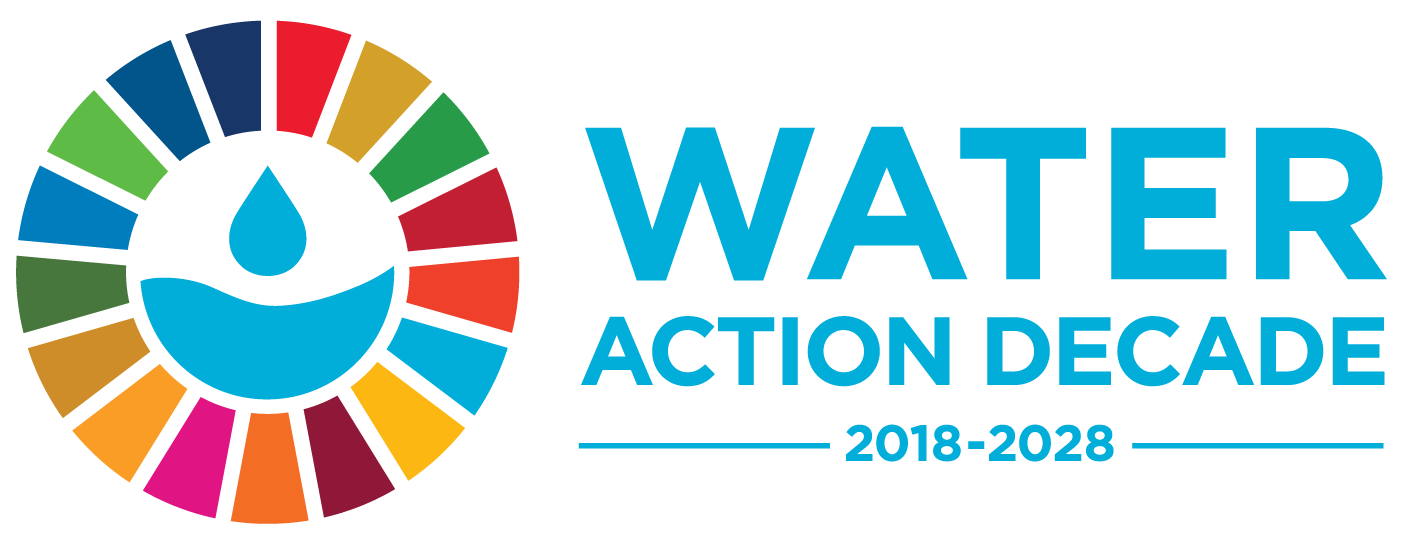水和环境卫生
说明
过去几十年里,对水资源不断增长的需求和对水资源的滥用增加了世界许多地区的污染风险并造成严重的水资源压力。地方水危机发生的频率和强度持续上升,对公众健康、环境可持续性、粮食和能源安全以及经济发展产生了严重影响。人口结构的不断变化和不可持续的经济做法正在影响我们可支配的水的数量和质量,使水成为越来越稀缺昂贵的资源,特别是对穷人、边缘化人群和弱势群体而言。
早在1977年,在阿根廷马德普拉塔会议上就提到了水的重要性。该会议制定了“社区饮水供应”行动计划,宣布所有人民都有权获得数量和质量与其基本需要相应的饮用水。在1981年至1990年的国际饮水供应和卫生十年、1992年在里约热内卢举行的联合国环境与发展会议(《21世纪议程》第18章)以及在都柏林举行的水与环境问题国际会议上,进一步强调了水的重要性。1993年,联合国大会将3月22日定为世界水日。2013年,将11月19日定为世界厕所日。
2000年,《千年发展宣言》呼吁世界到2015年将无法获得安全饮用水的人口比例和无法获得基本卫生设施的人口比例减半。大会宣布2003年为国际淡水年,随后将2005年至2015年定为“生命之水”十年。
为了协调联合国各实体和处理水和环境卫生问题的国际组织的努力,联合国行政首长协调会(首协会)于2003年设立联合国水机制,这是一个负责所有淡水和环境卫生相关问题的联合国机构间协调机制。
2008年宣布为国际环境卫生年。2010年7月28日,联合国大会第64/292号决议明确承认获得饮水和环境卫生设施的人权。
2015年9月,联合国首脑会议通过《2030年可持续发展议程》,其中包括关于水和环境卫生的可持续发展目标6。2016年12月,联合国大会一致通过“水促进可持续发展国际行动十年(2018-2028)”的决议,以支持实现可持续发展目标6和其他与水有关的目标。水也是《仙台减少灾害风险框架》和2015年《巴黎协定》等里程碑式协议的核心。
因此,确保人人享有饮用水和环境卫生并对其进行可持续管理,长期以来一直是联合国的一个议题,现在的优先重点是通过国家领导和全球伙伴关系,将《2030年议程》中与水有关的可持续发展目标的新愿景变成现实。水和环境卫生是可持续发展及其提供的一系列服务的核心,是减贫、经济增长和环境可持续性的基础。现在,世界需要改变管理水资源的方式,改变为数十亿人提供水和环境卫生服务的方式。
有关此主题的更多信息和文件,请访问此链接
This is a compilation of SDG 6 references in statements delivered at the General Debate of the 75th Session of the United Nations General Assembly. The information reflected on this website has been taken directly from the official statements received from Member States and does not imply the expression of any opinion whatsoever on the part of the Secretariat of the United Nations. For those statements not available in English, an unofficial translation was prepared.
For more information on the General Assembly process, please click here.
Countries marked with an asterisk (*) represent Member States who have made firm commitments to advancing SDG 6 in their statement at the General Debate of the 75th Session of the UN General Assembly.
Afghanistan
Azerbaijan*
Bahamas
Bangladesh
Belgium
Belize*
Benin
Botswana
Cabo Verde
Chile*
Colombia
Côte d’Ivoire
Ethiopia
Fiji*
Guatemala
Honduras
Hungary*
India*
Japan
Kazakhstan
Kyrgyzstan
Maldives
Mozambique
Namibia
Nauru
Nepal
Niger
Romania
Samoa
San Marino
Senegal
Sierra Leone*
Slovenia
South Africa
Spain
Syrian Arab Republic
Tajikistan*
Ukraine
United Republic of Tanzania
This is a compilation of the 2020 Voluntary National Reviews (VNRs) regarding information reported on SDG 6. The information reflected on this website has been taken directly from the official VNRs received from Member States and does not imply the expression of any opinion whatsoever on the part of the Secretariat of the United Nations. For those VNRs not available in English, an unofficial translation was prepared.
For more information on the VNR process, please click here.
To read the 2020 VNR Synthesis Report, please click here.
To read the 2021 Compilation of main messages for the 2021 VNRs, please click here.
To read the Secretariat Background Note for the VNRs at the 2021 HLPF, please click here.
Afghanistan | 2021
Argentina | 2020
Angola | 2021
Antigua & Barbuda | 2021
Armenia | 2020
Austria | 2020
Azerbaijan | 2021
Bangladesh | 2020
Bhutan | 2021
Bolivia | 2021
Brunei Darussalam | 2020
Bulgaria | 2020
Burundi | 2020
Cabo Verde | 2021
Chad | 2021
China | 2021
Colombia | 2021
Comoros | 2020
Cuba | 2021
Cyprus | 2021
Czech Republic | 2021
Democratic People's Republic of Korea | 2021
Democratic Republic of the Congo | 2020
Denmark | 2021
Dominican Republic | 2021
Ecuador | 2020
Egypt | 2021
Estonia | 2020
Finland | 2020
Gambia | 2020
Germany | 2021
India | 2020
Indonesia | 2021
Japan | 2021
Kenya | 2020
Kyrgyz Republic | 2020
Lao People's Democratic Republic | 2021
Madagascar | 2021
Malaysia | 2021
Marshal Islands | 2021
Mexico | 2021
Morocco | 2020
Mozambique | 2020
Namibia | 2021
Nepal | 2020
Nicaragua | 2021
Niger | 2020, 2021
Nigeria | 2020
North Macedonia | 2020
Norway | 2021
Panama | 2020
Papua New Guinea | 2020
Paraguay | 2021
Peru | 2020
Qatar | 2021
Republic of Moldova | 2020
Russian Federation | 2020
San Marino | 2021
Spain | 2021
Sweden | 2021
Thailand | 2021
Tunisia | 2021
Uganda | 2020
Ukraine | 2020
Uruguay | 2021
Uzbekistan | 2020
Zambia | 2020
Zimbabwe | 2021

About the Water Action Decade 2018-2028
The United Nations has long been addressing the global crisis caused by unsafe water and sanitation and growing demands on the world’s water resources to meet human, economic and environmental needs.
In December 2017, UN Member States adopted United Nations General Assembly resolution 71/222 on an International Decade for Action on ‘Water for Sustainable Development’ 2018-2028.
In response to the ambitious 2030 Agenda, the Water Action Decade will accelerate efforts towards meeting water-related challenges, including limited access to safe water and sanitation, increasing pressure on water resources and ecosystems, and an exacerbated risk of droughts and floods.
Water and sanitation are preconditions to life and we must put a greater focus on these human rights. During the decade, the international community sets out to:
Advance sustainable development
Energize existing programmes and projects
Inspire action to achieve the 2030 Agenda
Learn more at Water Action Decade | Department of Economic and Social Affairs
Action Networks for the SDGs are action-oriented networks and communities that are maintained by UN system entities or actors that focus on accelerating progress in certain sustainable development thematic areas, typically contributing to multiple interlinked SDGs.
Action networks are useful in mobilizing resources, generating momentum and creating awareness, spurring tangible results in support of the objectives of the network, scaling up existing initiatives or catalyzing new SMART commitments and actions.
Acceleration Action Updates 2021
The following actions were published in July (updated July 12th):
1. City Water Resilience Approach (CWRA) | Arup, Stockholm International Water Institute (SIWI) & Resilient Cities Network (RCN)
2. Support action, innovation and learning to address source-to-sea priorities | Action Platform on Source-to-Sea Management (Partnership)
The following actions were published in June:
1. Reimagine WASH: Making services climate resilient to tackle water scarcity - (UNICEF) & Stockholm International Water Institute (SIWI)
2. Water/ocean governance thought leadership, thematic expertise, technical support and policy advocacy promoted and strengthened globally - UNDP & SIWI Water Governance Facility
3. The H2O Project for Youth Engagement in Rural Field Actions | My H2O
4. Scaling up a sustainable solution for safe drinking water | 1001 Fontaines
5. Prev leak project | Technologica Plumbing Solutions
The following actions were published in May:
1. The H2O Solution for clean drinking water in rural China | My H2O
2. Extend access to drinking water at the bottom of the pyramid using chlorinated solutions in Burkina Faso | BILADA
The following actions were published in March:
Strategic Action Programme for the Lake Chad Basin - Building Climate Change Resilience and Reducing Ecosystem Stress | UNDP
- Ending Coastal Water Scarcity using the Sea & Sun | Elemental Water Makers
- Rain Water Management | Shree Someshwar Education Trust
- WaterProject | University of Southeastern Norway
- SDG 6 IWRM Support Programme | Global Water Partnership
- Integrated Environmental Management of the Río Motagua Watershed | Ministry of Foreign Relations Guatemala
- TSC Water Security Fund® | Thomas Schumann Capital
- Water Resources | UNDP
- Water- Energy- Food -Safety- Ecology -Community- Health (WEFSECH) | SeaNexus bluebioeconomy
- BrighTap | BrighTAP
- Global Sustainable Supply Chains for Marine Commodities - Ministries and Bureaus of Fisheries and Planning of Costa Rica, Ecuador, Indonesia and The Philippines
Featured SDG 6 Action Networks
| Acceleration Actions | Conscious Fashion and Lifestyle Network |
| SDG Good Practices | Decent Jobs for Youth |
Browse commitments from all networks here.
Even before COVID-19 struck, progress on Sustainable Development Goal (SDG) 6 was alarmingly off track. According to the latest UN report, the current rate of progress on achieving water and sanitation for all will have to quadruple to meet the 2030 deadline.
On Friday, 9 July 2021, a virtual SDG 6 Special Event will be hosted during the High-level Political Forum on Sustainable Development 2021. In line with the theme of the 2021 high-level political forum on sustainable development, the Special Event will focus on how the SDG 6 Global Acceleration Framework can support a sustainable and resilient recovery from the COVID-19 pandemic that promotes the economic, social and environmental dimensions of sustainable development, and builds an inclusive and effective path for the achievement of the 2030 Agenda in the context of the decade of action and delivery for sustainable development.
The SDG 6 Global Acceleration Framework introduces this multi-stakeholder, high-level, annual stock-taking event to enable stakeholders to keep up momentum on SDG 6 as well as share lessons and best practices. The SDG 6 Special Event will review the progress to date and showcase some of the projects that have been developed around the Framework. As a new contribution to the SDG 6 Global Acceleration Framework, progress on the SDG 6 Capacity Development Initiative will be introduced by the co-coordinators UN DESA and UNESCO.
- Watch the recording of the event here.
- Access the agenda for the special event, hosted on 9 July 2021 here.
For more information, please check the UN-Water website: http://www.unwater.org/sdg-6-special-event-during-high-level-political-forum-on-sustainable-development-2021

UN SDG: Learn is a United Nations initiative that aims to bring relevant and curated learning solutions on sustainable development topics to individuals and organizations.
Through the collaborative efforts of the United Nations, multilateral organizations, and sustainable development partners from universities, civil society, academia and the private sector, UN SDG: Learn provides a unique gateway that empowers individuals and organizations through an informed decision when selecting among a wealth of SDG-related learning products and services that are currently available.
Click here to see all the online courses related to SDG 6 Clean Water and Sanitation.
Please, check this page for updates on the work of Ms. Retno Marsudi, UN Secretary-General’s Special Envoy for Water: https://sdgs.un.org/topics/water/SpecialEnvoy

